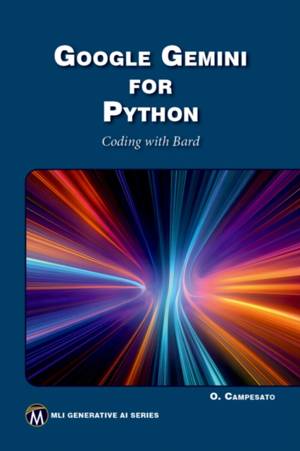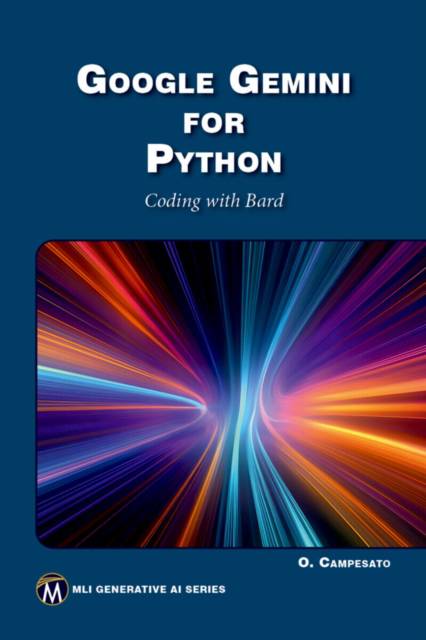
- Afhalen na 1 uur in een winkel met voorraad
- Gratis thuislevering in België vanaf € 30
- Ruim aanbod met 7 miljoen producten
- Afhalen na 1 uur in een winkel met voorraad
- Gratis thuislevering in België vanaf € 30
- Ruim aanbod met 7 miljoen producten
Zoeken
€ 76,45
+ 152 punten
Omschrijving
This book provides a bridge between the worlds of Python 3 programming and Generative AI, aiming to equip readers with the skills to navigate both domains with confidence. It begins with an introduction to fundamental aspects of Python programming, which include various data types, number formatting, Unicode and UTF-8 handling, and text manipulation techniques. In addition, you will learn about loops, functions, data structures, NumPy, Pandas, conditional logic, and reserved words in Python. Further chapters show how to handle user input, manage exceptions, and work with command-line arguments. The text then transitions to the realm of Generative AI, discussing its distinction from Conversational AI. Popular platforms and models, including Bard (now called "Gemini") and its competitors, are presented to give readers an understanding of the current AI landscape. The book discusses the capabilities of Bard, its strengths, weaknesses, and potential applications. Finally, you will learn how to generate a variety of Python 3 code samples via Bard.
Specificaties
Betrokkenen
- Auteur(s):
- Uitgeverij:
Inhoud
- Aantal bladzijden:
- 192
- Taal:
- Engels
- Reeks:
Eigenschappen
- Productcode (EAN):
- 9781501522741
- Verschijningsdatum:
- 1/04/2024
- Uitvoering:
- Paperback
- Formaat:
- Trade paperback (VS)
- Afmetingen:
- 152 mm x 229 mm
- Gewicht:
- 281 g

Alleen bij Standaard Boekhandel
+ 152 punten op je klantenkaart van Standaard Boekhandel
Beoordelingen
We publiceren alleen reviews die voldoen aan de voorwaarden voor reviews. Bekijk onze voorwaarden voor reviews.







